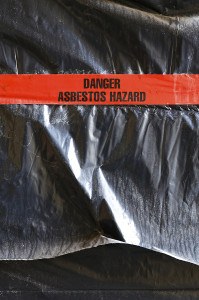 A judge who was assigned to hear all of the asbestos cases in her southwestern Illinois county was stripped of those cases after it was revealed her campaign committee received $30,000 in contributions from area law firms specializing in asbestos-related cases.
A judge who was assigned to hear all of the asbestos cases in her southwestern Illinois county was stripped of those cases after it was revealed her campaign committee received $30,000 in contributions from area law firms specializing in asbestos-related cases.
Madison County Circuit Judge Barbara Crowder was relieved of the asbestos cases Tuesday, and her cases were given to Associate Judge Clarence Harrison, the Belleville News-Democrat reported. The reassignment was first reported Tuesday by a Madison County legal publication, though that story made no mention of the campaign contributions.
Crowder, who presided over the county’s asbestos cases since July of last year, signed a preliminary order giving three law firms the majority of the trial slots for the 2013 asbestos docket, the paper reported. Within days, lawyers from those firms gave Crowder’s campaign $30,000 in contributions.
Ed Murnane, who heads the Illinois Civil Justice League, a business-backed judicial watchdog group, said plaintiffs’ lawyers use the trial slots as national marketing tools that allow them to “sell the fact to a prospective client that you already have time in a courtroom.”
Crowder, a Democrat who has been a circuit judge since 2006 and is up for retention in November, did not respond to a phone message seeking comment Wednesday left at the home she shares with her husband, Lawrence Taliana, who is her campaign committee’s chairman.
The county’s chief judge, Ann Callis, said she transferred the cases away from Crowder, in consultation with circuit judges, “to maintain the public trust in a fair and unbiased judiciary.” She declined additional comment, including about whether a complaint was filed with the Illinois Judicial Inquiry Board, which investigates cases of possible judicial misconduct.
The Illinois Judicial Conduct Code does not explicitly bar judges’ campaign committees from accepting contributions from law firms, but it does say judges should conduct themselves “in a manner that promotes public confidence in the integrity and impartiality of the judiciary.”
Murnane said common sense should have told Crowder she should not take contributions from plaintiffs’ attorneys in asbestos cases.
“The court of common sense, the court of fairness would suggest this was a terrible blunder on the part of Judge Crowder,” Murnane said. “Without knowing all the details, it is exactly the kind of conduct that causes citizens to lose faith in the judicial system and their judges.”
Was this article valuable?
Here are more articles you may enjoy.

 AIG’s Zaffino: Outcomes From AI Use Went From ‘Aspirational’ to ‘Beyond Expectations’
AIG’s Zaffino: Outcomes From AI Use Went From ‘Aspirational’ to ‘Beyond Expectations’  Red Flags Adjusters Should Look for in Truck Accident Claims Investigations
Red Flags Adjusters Should Look for in Truck Accident Claims Investigations  NYC Travel Snarled by Snow as Central Park Gets 15 Inches
NYC Travel Snarled by Snow as Central Park Gets 15 Inches  UK Floods Raise Specter of ‘Mortgage Prisoners’ Across Banks
UK Floods Raise Specter of ‘Mortgage Prisoners’ Across Banks 